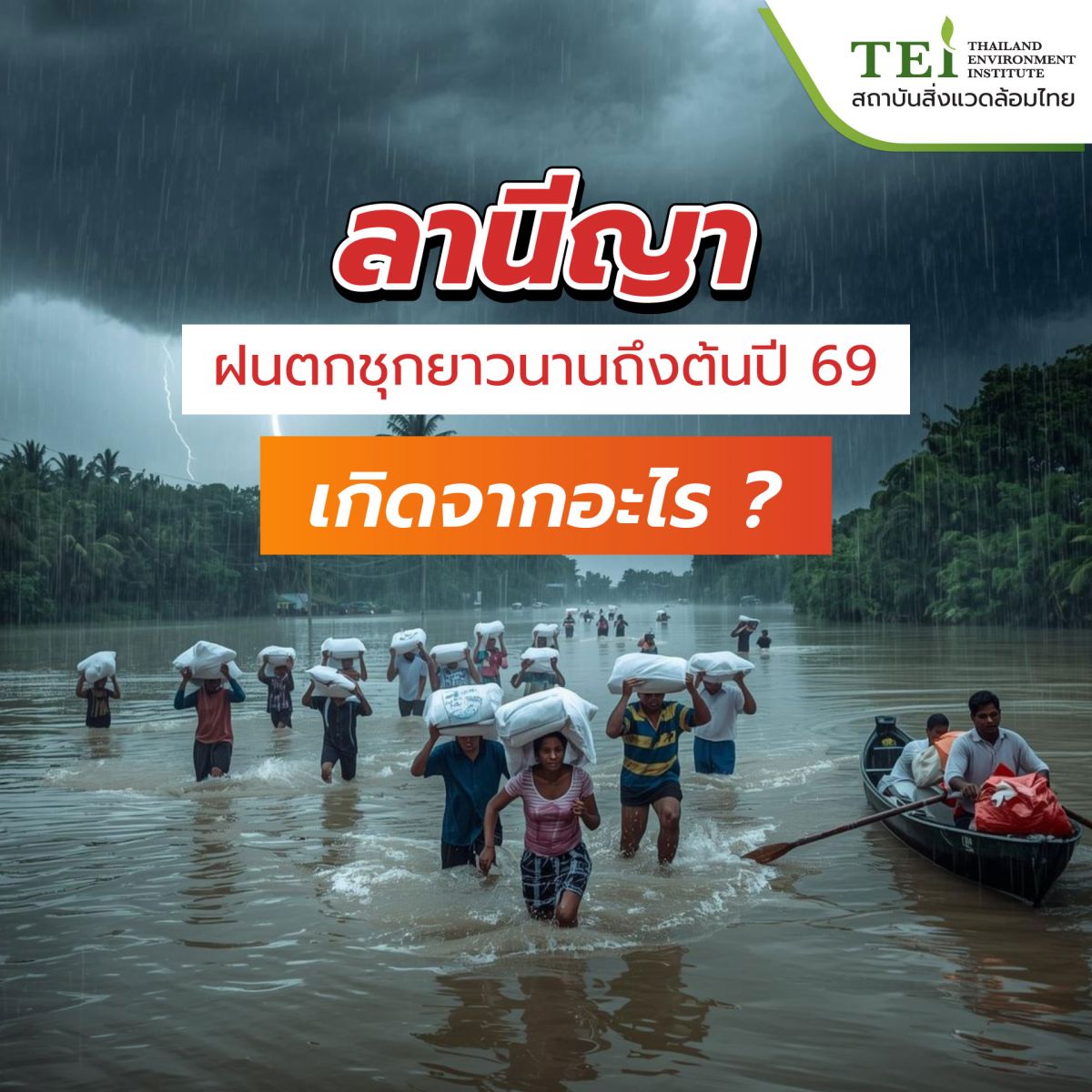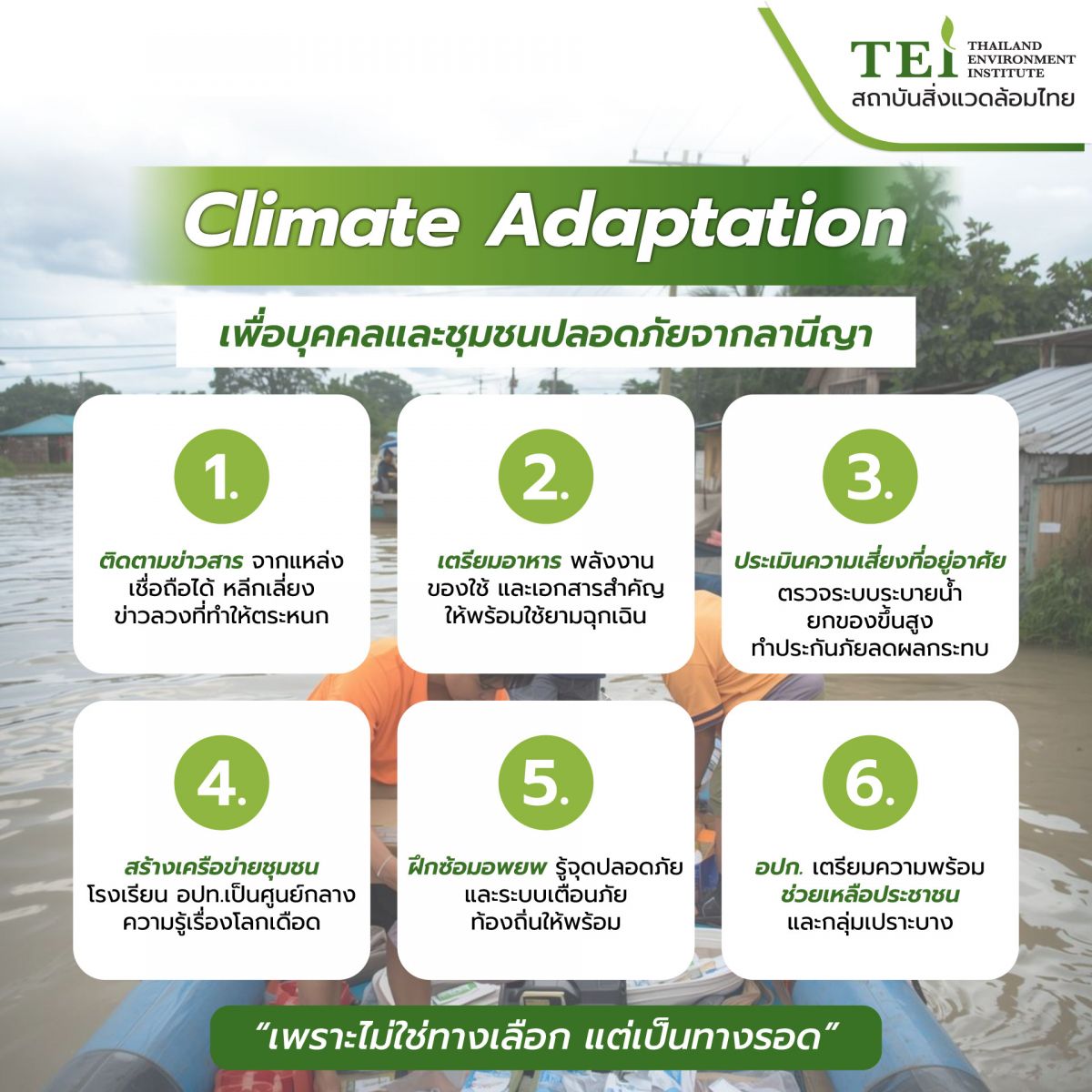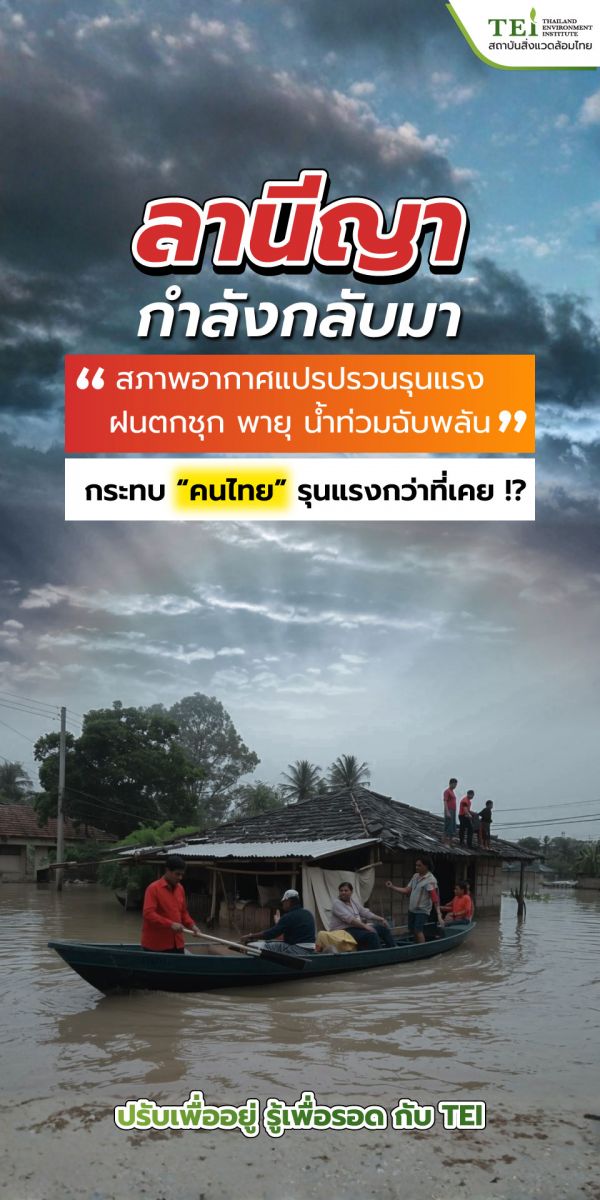Did you know? La Niña is coming back! Because of Climate Change, or 'Global Boiling,' volatility has become severe. Likewise, the La Niña and El Niño cycles—opposite poles of hot and cold weather that were once predictable—are now so erratic that the WMO (World Meteorological Organization) admits they must be monitored closely, month-to-month or even week-to-week.

La Niña will cause affected zones to become cooler, with a tendency for increased rainfall and storms. For Thailand, which is currently in its peak rainy season, many low-lying areas near major rivers in the lower northern and upper central regions are already experiencing widespread, impactful flooding. But La Niña is signaling that it is accelerating at full speed, promising to be severe and bring even more heavy rain.
So, will this year's winter still be cold and dry as usual?
The Thailand Environment Institute (TEI) forecasts a trend based on the strengthening La Niña signal, which is expected to intensify starting this October (2025) and extend across the new year until January 2026. The result: This year, we will see a Thai winter that is unlike any before.
What will Thailand's Winter 2025 be like? And what will the impacts be?
What we will certainly face during the
end-of-year and New Year celebrations is rainfall potentially as heavy as the rainy season, and storms may "stop by to say hello," forcing us to manage water storage and drainage periodically. Furthermore, recurring floods—a usual suspect during La Niña cycles—will create prolonged impacts, affecting lifestyles, the economy, and causing numerous health problems.
Is it time to ‘Adapt to Live, Learn to Survive’?
The Thailand Environment Institute (TEI) empathizes with the public who have had to become flood victims. With some urban areas already impacted by flash floods
more than three times this year, TEI offers adaptation guidelines for individuals and communities to understand that
"the old kind of winter may not happen this year." We must know the risks and be more prepared to live with water, as follows:
- Follow risk area news from reliable sources. Do not follow "Fake News" that causes excessive panic.
- Prepare food, backup energy, essential supplies, and important documents to ensure necessary transactions can still be made.
- Do not forget to assess the risk to your home and property. This includes moving belongings to higher ground, checking home drainage systems, and acquiring insurance to reduce damage and cope with economic impacts.
- Build a community network. Ensure residents, schools, and local agencies are well-informed and become a hub for knowledge about 'Global Boiling.'
- Prepare practical readiness: conduct evacuation drills and test local warning systems. Have a management system, know evacuation points, and ensure safe movement, even at night.
- Local Administrative Organizations (LAOs) must be prepared to assist affected citizens and vulnerable groups.

Join TEI in building a society safe from the dangers of 'Global Boiling.' By simply knowing, adapting, and changing, we can be safe.
"Adapt to Live, Learn to Survive." Because this winter will not be the same.





Share: